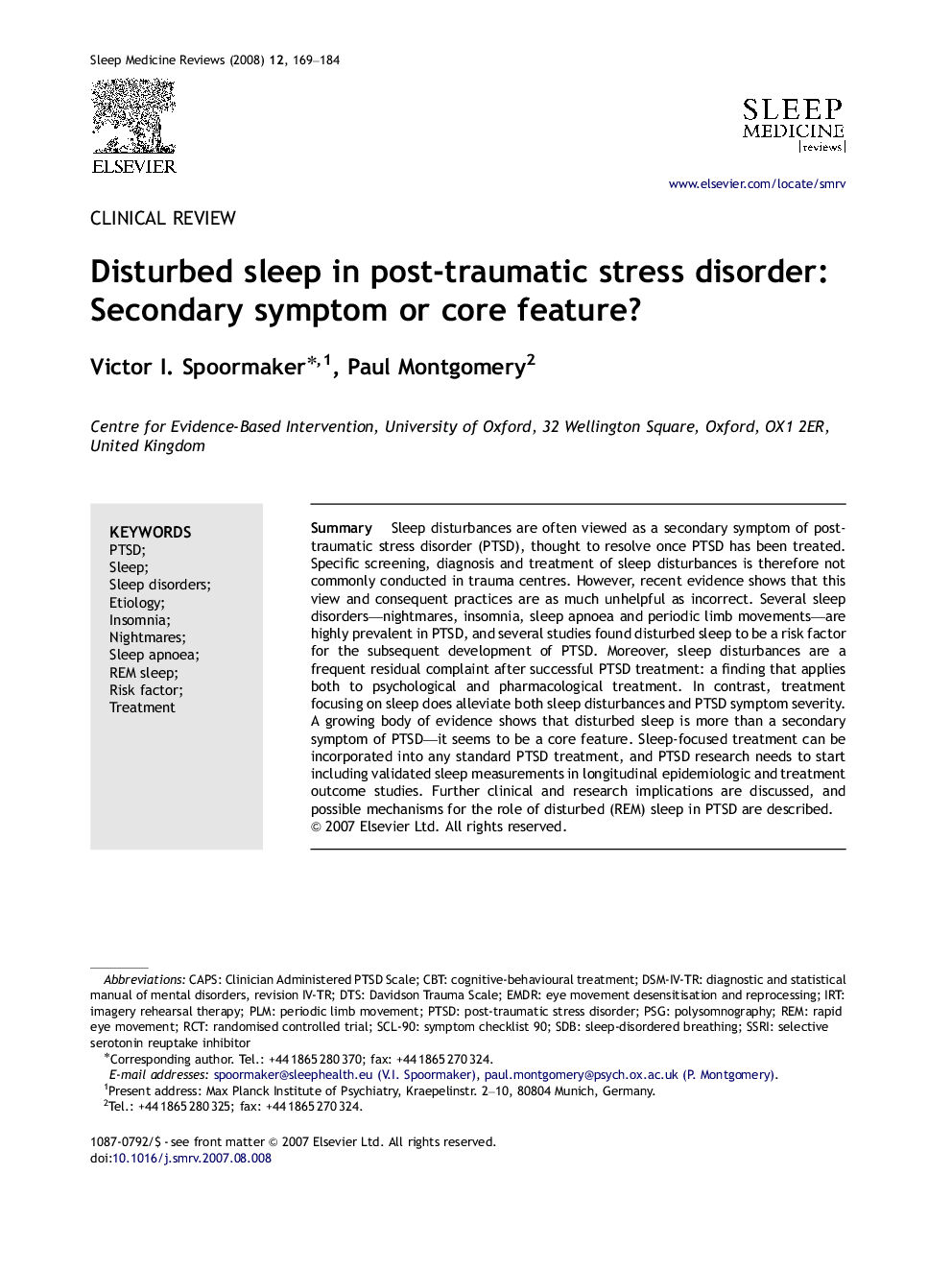| کد مقاله | کد نشریه | سال انتشار | مقاله انگلیسی | نسخه تمام متن |
|---|---|---|---|---|
| 3091679 | 1190430 | 2008 | 16 صفحه PDF | دانلود رایگان |

SummarySleep disturbances are often viewed as a secondary symptom of post-traumatic stress disorder (PTSD), thought to resolve once PTSD has been treated. Specific screening, diagnosis and treatment of sleep disturbances is therefore not commonly conducted in trauma centres. However, recent evidence shows that this view and consequent practices are as much unhelpful as incorrect. Several sleep disorders—nightmares, insomnia, sleep apnoea and periodic limb movements—are highly prevalent in PTSD, and several studies found disturbed sleep to be a risk factor for the subsequent development of PTSD. Moreover, sleep disturbances are a frequent residual complaint after successful PTSD treatment: a finding that applies both to psychological and pharmacological treatment. In contrast, treatment focusing on sleep does alleviate both sleep disturbances and PTSD symptom severity. A growing body of evidence shows that disturbed sleep is more than a secondary symptom of PTSD—it seems to be a core feature. Sleep-focused treatment can be incorporated into any standard PTSD treatment, and PTSD research needs to start including validated sleep measurements in longitudinal epidemiologic and treatment outcome studies. Further clinical and research implications are discussed, and possible mechanisms for the role of disturbed (REM) sleep in PTSD are described.
Journal: Sleep Medicine Reviews - Volume 12, Issue 3, June 2008, Pages 169–184